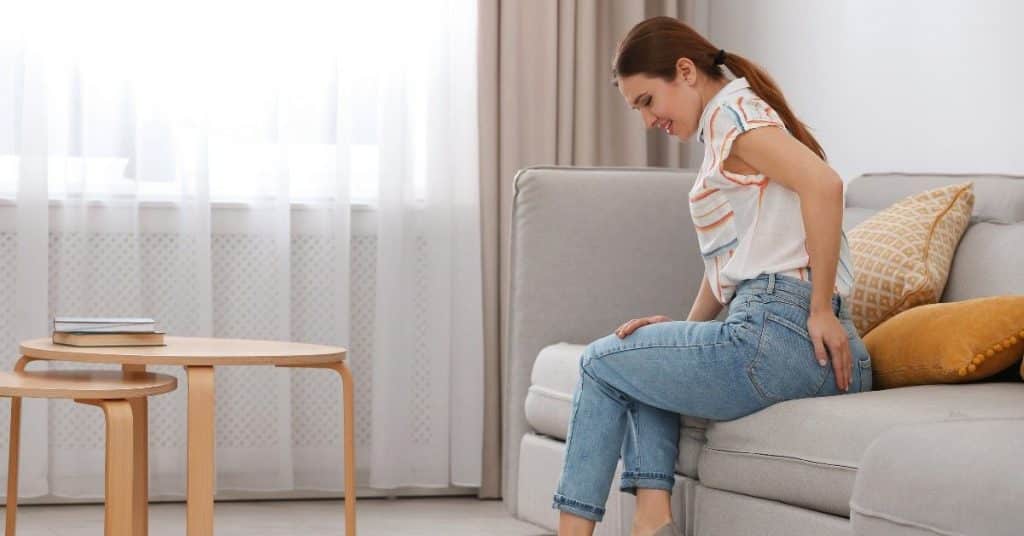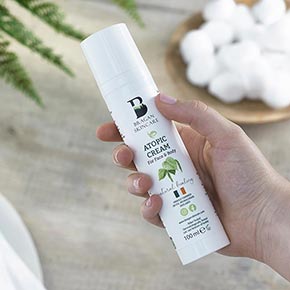How to treat an itchy bum at night.
Introduction to itchy bum at night.
Experiencing an itchy bum at night can be uncomfortable and even disruptive to sleep. The sensations can range from mild to intense, and various factors contribute to this nighttime itchiness. With the right knowledge and treatments, you can manage your itchy bum at night, from hygiene issues and skin conditions to medical causes and lifestyle factors. In this guide, we’ll cover the common causes of this problem, ways to relieve it, and methods to prevent it in the future.

What is Nocturnal Itchiness?
Nighttime itching, or nocturnal pruritus, occurs when itchiness worsens or is more noticeable during the night. This condition can be due to several factors, including biological processes, environmental factors, or underlying skin conditions. Understanding why this happens is the first step towards finding effective relief.
Why Itchy Skin Gets Worse at Night
Many people find their skin more sensitive or itchy at night. The body’s circadian rhythms, changes in skin temperature, and even the lack of distractions can amplify sensations of itchiness. Lower activity levels in the evening, for example, mean there’s less to occupy the mind, making minor sensations more noticeable. Additionally, skin loses moisture at night, which can make itchiness more intense.
Common Causes of Itchy Bum at Night
Several factors contribute to the irritation or itchiness around the anal area at night. Here are some of the most common causes:
Hygiene and Skin Irritants
Inadequate or overly aggressive hygiene can lead to itching. Both improper cleansing after using the restroom and the use of harsh soaps that deplete the skin’s natural oils can exacerbate the problem. Furthermore, wearing tight or non-breathable underwear can trap moisture, irritating the skin.

Skin Conditions That Contribute to Nighttime Itching
Certain skin conditions are known to cause itching, which can worsen at night.
- Dermatitis and Eczema: These skin conditions cause inflammation and sensitivity, leading to itching and redness. The delicate skin around the anal area is particularly susceptible to flareups.
- Psoriasis and Other Skin Disorders: Psoriasis can appear anywhere on the body, and when it affects sensitive areas, it can lead to intense itchiness, particularly at night when moisture levels drop.
For those dealing with stubborn skin conditions like eczema, psoriasis, or any other irritation on sensitive areas such as the bum, Bragan Skincare’s Atopic Cream, crafted with soothing snail mucin, offers an ideal solution. Bragan Skincare has specially formulated this gentle yet effective cream to calm inflammation, hydrate deeply, and restore comfort to the skin. Snail mucin’s natural regenerative properties provide a protective layer, easing discomfort while promoting healing in even the most delicate areas. With regular use, Bragan Skincare’s Atopic Cream helps reduce itchiness, smooth rough patches, and bring long-lasting relief, letting you feel more comfortable and confident day and night.
Allergic Reactions
Allergic reactions to specific fabrics, personal care products, or even laundry detergents can cause irritation. If you are prone to skin sensitivities, it’s essential to use hypoallergenic products.
Dietary Triggers
Certain foods and beverages can exacerbate nighttime itching. Spicy foods, alcohol, caffeine, and processed foods can act as irritants, particularly for those with sensitive digestive systems or skin.
The Role of Medical Conditions in Itchy Bum at Night
Medical conditions can also significantly contribute to or exacerbate an itchy bum at night.
Haemorrhoids and Anal Fissures
Haemorrhoids and fissures, which cause swelling and tearing in the anal area, are common sources of discomfort. The inflammation and sensitivity associated with these conditions often worsen when lying down, as blood flow can increase to the area.
Fungal Infections
Yeast infections or fungal overgrowth can cause persistent itchiness, especially at night when moisture accumulates in the area. Fungal infections are more common in warm, moist environments, so wearing breathable cotton underwear and keeping the area dry can help.
Again, Bragan Skincare’s Atopic Cream is the perfect product to address any fungal issues.
Parasitic Infections (e.g., Pinworms)
Pinworms, which are common in children but can also affect adults, cause itching around the anus, often intensifying at night. The female pinworm lays eggs near the anal area during the nighttime, triggering itching that can disrupt sleep.
Itchy Bum in Children vs. Adults
The factors that cause nighttime itchiness can vary between children and adults.
Unique Factors Affecting Children
Children most commonly experience itchy bums at night due to pinworms and hygiene issues. Young children can easily transmit pinworms, especially in communal settings like schools or daycares.
Adult-Specific Factors
In adults, factors such as diet, stress, and medical conditions like haemorrhoids play a more significant role. Adults may also be more prone to fungal infections, especially if they frequently exercise or wear tight clothing.
Lifestyle Factors That Can Worsen Nighttime Itchiness
Your lifestyle choices can either alleviate or worsen the itchiness experienced at night.
Diet, Hydration, and Alcohol
What you eat and drink throughout the day can have a significant impact on your skin. Drinking alcohol, for example, can lead to dehydration, making the skin drier and more prone to irritation. Staying hydrated and eating a balanced diet can help minimise dryness and sensitivity.
Stress and Mental Health
Stress can trigger physical reactions in the body, including skin sensitivity and itchiness. When the mind is tense, the body often follows suit, increasing the sensation of itchiness and making it harder to relax.
Effects of Certain Medications
Some medications list itching as a potential side effect. Antihistamines, often taken for allergies, can dry out the skin, while certain antibiotics and diuretics can lead to increased skin sensitivity and discomfort.

Practical Tips to Relieve Itchy Bum at Night
To ease itching and improve sleep quality, here are some practical steps to take:
Hygiene Practices to Ease Nighttime Itching
Keeping the area clean and dry is essential. Avoid using harsh soaps and instead opt for gentle, fragrance-free cleansers. Pat the area dry after washing rather than rubbing, and change into clean, breathable underwear each night.
Topical Treatments: Creams, Lotions, and Ointments
Various over-the-counter creams, such as Bragan Skincare’s Atopic Cream, can provide relief from itching. Natural oils like coconut oil can also be soothing, offering moisture without clogging pores.
Home Remedies for Quick Relief
Applying a cool compress can provide immediate relief for itching. Additionally, aloe vera gel or a baking soda bath can help calm irritated skin, making it easier to fall asleep.
When to See a Doctor
Persistent itching that doesn’t improve with home care may require medical attention.
Recognising Signs of Severe Conditions
If pain, bleeding, or swelling accompany the itching, it could signal a more serious condition like an infection or severe dermatitis. Consulting a healthcare provider can help identify any underlying causes.
Medical Treatments and Procedures Available
Doctors may prescribe stronger topical treatments, oral medications, or even recommend procedures if necessary, especially for conditions like haemorrhoids or fissures that don’t respond to home remedies.
FAQs on Itchy Bum at Night
- Why does my bum get itchy at night but not during the day?
Nighttime can intensify itching due to circadian rhythms and the body’s natural cooling, which can make the skin more sensitive. - Are there any foods that exacerbate itching during the night?
Yes, foods high in spices, caffeine, and sugar can sometimes increase skin sensitivity, leading to greater itchiness. - Can stress be a factor in nighttime itchiness?
Stress can heighten sensations of itchiness due to increased cortisol levels, which can make the skin more reactive. - Is itching at night more common in certain age groups?
It can occur at any age, but children and older adults may experience it more frequently due to factors like hygiene and skin sensitivity. - Are there any prescription treatments available for an itchy bum during the night?
Yes, doctors may prescribe antihistamines, corticosteroids, or other medications if over-the-counter remedies like Bragan Skincare’s Atopic Cream are ineffective. - Can itchy bum at night be a sign of a serious health issue?
In some cases, persistent itching can indicate conditions like pinworms, infections, or inflammatory skin. Seek medical advice if symptoms persist.
Preventing Future Episodes of Itchy Bum at Night
To keep nighttime itchiness at bay, consider incorporating these preventive measures into your routine:
Long-Term Hygiene and Skin Care Strategies
Consistently gentle cleaning, wearing loose clothing, and avoiding irritants can significantly reduce the likelihood of nighttime itching.
Adjusting Your Diet and Lifestyle
Eating balanced meals, staying hydrated, and managing stress can contribute to overall skin health, making it less prone to irritation.
Monitoring skin health and conditions.
Regular skin check-ups and being attentive to changes in skin texture or colour can help catch any potential issues early, before they become serious.
Conclusion: Restoring Comfort and Ending the Cycle of Itchy Bum at Night
By understanding the various causes of itchy bums at night and implementing effective treatments and preventive strategies, you can significantly reduce the discomfort. Itchy bum at night may be an inconvenient issue, but with the right care and attention, relief is within reach.
Conclusion: Restoring Comfort and Ending the Cycle of Itchy Bum at Night
For those dealing with the discomfort of an itchy bum at night, relief often requires a balanced approach that includes understanding the causes, taking practical steps to alleviate symptoms, and making lifestyle changes to prevent recurrence. This guide covered key aspects of nocturnal itching and highlighted ways to address it effectively, ensuring better comfort and sleep quality over time.
By keeping the area clean, using soothing treatments, and monitoring your diet and stress levels, you can significantly reduce the itchiness that disrupts your rest. If symptoms persist, consulting a healthcare professional can help identify any underlying issues and provide access to medical treatments tailored to your needs.
Whether caused by lifestyle factors, medical conditions, or environmental factors, you can effectively manage your itchy bum at night with informed care and proper attention. Don’t let itchiness interfere with your sleep—take proactive steps today for lasting comfort and peace of mind.
Final Tips for Managing and Preventing Itchy Bum at Night
If you find yourself dealing with persistent itching, try integrating the following practical tips into your daily routine. These strategies not only help alleviate discomfort but also work as preventative measures:
- Wear Breathable Fabrics: Choose underwear made from natural fibres like cotton, which allows better airflow and keeps the area dry. Avoid tight-fitting clothes, especially during sleep, to prevent trapping moisture and causing irritation.
- Create a Bedtime Skincare Routine: Just as you might for other parts of your body, care for the skin in sensitive areas with gentle products. Opt for unscented and hypoallergenic wipes or lotions to keep the area clean and moisturised without causing additional irritation.
- Avoid Irritants in Personal Care Products: Certain soaps, detergents, and even toilet paper can contain chemicals that irritate sensitive skin. Try switching to products labelled as “sensitive skin-friendly” or “fragrance-free,” and check your detergent for harsh chemicals that could linger on clothing.
- Moisturise Regularly: Dry skin is more prone to itching, so keeping the area moisturised can help. Use gentle, unscented moisturiser and apply it after showering to lock in moisture. If you’re prone to irritation, you might find relief with natural oils, such as coconut or aloe vera gel, which have anti-inflammatory and soothing properties.
- Watch for Dietary Triggers: Certain foods can trigger skin sensitivity or digestive issues, leading to discomfort at night. Spicy foods, caffeine, alcohol, and highly processed foods can sometimes increase sensitivity. Keep a food diary to identify any correlations between your diet and itchy episodes, then adjust accordingly.
- Establish a Consistent Sleep Routine: Good sleep hygiene goes beyond bedtime; it also involves managing stress, which can exacerbate itchiness. Aim for a calming nighttime routine, including relaxation exercises, meditation, or gentle stretching, to reduce stress levels and help you fall asleep without focusing on discomfort.
- Stay Hydrated: Drinking adequate water throughout the day helps keep skin hydrated, preventing dryness that can lead to itchiness. Hydrated skin is less prone to irritation and better equipped to handle environmental factors.
- Consider a Barrier Cream: For those experiencing chronic itching, applying a thin layer of barrier cream can create a protective layer that prevents chafing and reduces sensitivity to irritants. Look for products containing ingredients like zinc oxide, which is both soothing and protective.
- Use an Anti-Itch Cream as Needed: There are over-the-counter creams specifically formulated to relieve itching. Bragan Skincare’s Atopic Cream is a very popular choice. However, consult with a healthcare provider for advice on safe use and to avoid over-application.
- Practice Good Hand Hygiene: It may seem unrelated, but for those with a tendency to scratch, keeping hands clean helps minimise the risk of infection if scratching does occur. Trim nails regularly and keep them clean to prevent introducing bacteria to the skin.
- Seek Professional Advice for Persistent Issues: If these steps don’t bring relief, or if symptoms worsen, it may be time to consult a dermatologist or healthcare provider. Conditions like eczema, psoriasis, or parasitic infections require specific treatments that only a professional can provide.
Long-Term Solutions for a Healthy, Itch-Free Sleep
Achieving comfortable, itch-free sleep often requires a combination of awareness, consistent care, and attention to one’s overall health. By addressing potential causes and making small lifestyle adjustments, you’re more likely to find lasting relief from nighttime itching.
Remember, nighttime comfort is attainable with the right steps. From enhancing hygiene to choosing the right skincare products, simple daily habits can make a significant difference. Itchy bum at night may be challenging to discuss, but it’s a common issue with effective solutions—and now you’re equipped to manage it.
Here’s to restful, uninterrupted nights and a step towards feeling your best!
Atopic Skin Repair Cream
Bragan Skincare Snail Mucin Atopic Cream At Bragan Skincare, we believe in doing things differently. Our Snail Mucin Atopic Cream isn’t just another product on the shelf—it’s a promise to your skin. Powered by the unmatched healing properties of pure snail mucin, this cream is specially crafted to soothe redness, calm irritation, and restore balance to even the most sensitive skin. Perfect for those suffering with Eczema, Psoriasis. Dermatitis and many other skin condition. Why snail mucin? Because it works. Packed with naturally occurring allantoin, glycolic acid, and peptides, it’s a game-changer for reducing redness, promoting repair, and deeply hydrating…
Featured Bragan Skincare Products
-
€39.99 – €100.00Price range: €39.99 through €100.00Select options This product has multiple variants. The options may be chosen on the product page
-
€100.00Select options This product has multiple variants. The options may be chosen on the product page

